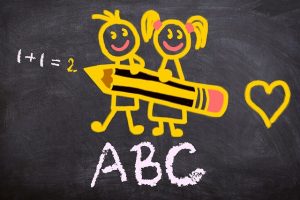 Starting kindergarten can be a challenging time for children as many are leaving home and learning to interact with others for the first time. As such, it is important for kindergartners to receive proper support from their teachers.
Starting kindergarten can be a challenging time for children as many are leaving home and learning to interact with others for the first time. As such, it is important for kindergartners to receive proper support from their teachers.
Now, University of Missouri College of Education researchers have found that a readiness test can predict kindergarteners’ success in school after 18 months. Melissa Stormont, a professor of special education, says identifying students early in the academic year who may need additional support can allow teachers and parents more time to build essential academic and social-behavioral skills.
Kindergarteners come to school from varying backgrounds and have different abilities,” Stormont said. “This is a critical time to assess student academic and social readiness, so that teachers can provide support as early as possible before issues worsen and become harder to change. This screening tool is a simple first step that can help children in the long run.”
The researchers distributed the screening tool to 19 teachers in six elementary schools. Early in the school year, those teachers used the screener to rate 350 students. The MU researchers then compared the students’ scores from the screener to their performances on a math and reading achievement test and to teacher ratings of their social and emotional skills 18 months later. Children who rated poor in academic readiness were nine to 10 times more likely to have low reading scores at the end of first grade. In addition, children who rated poor in behavior readiness were six times more likely to be rated as having displayed disruptive behavior and poor social skills by their first-grade teachers.
“Using this tool could help teachers in developing lessons and interventions to help their students who are having difficulties,” Stormont said. “This study highlights the need to support children more when they transition to kindergarten and these positive results definitely merit further study.”
Stormont recommends that parents support children entering kindergarten by talking with their child about social behavior expectations in kindergarten and have them practice doing things like taking turns and following directions. In addition, parents and their children can meet with teachers to discuss what those expectations are. Parents also can explore summer programs before school starts that can help acclimate children to the classroom and learn routines. The study results also support efforts to help children with reading and math, as initial poor academic readiness predicted problems 18 months later.
“Teacher-rated school readiness items in a kindergarten sample: Outcomes in first grade” was published in School Psychology.
Read the news release for “Screening Kindergarten Readiness” published in Mizzou News from the University of Missouri.